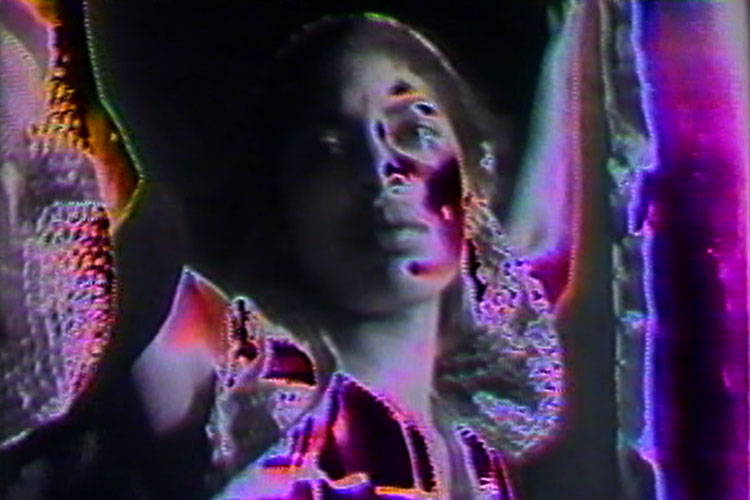You are here
Water Ritual #1: An Urban Rite of Purification

Made in collaboration with performer Yolanda Vidato, Water Ritual #1 examines Black women’s ongoing struggle for spiritual and psychological space through improvisational, symbolic acts. Shot in 16mm black-and-white, the film was made in an area in Watts that had been cleared to make way for the I-105 freeway, but ultimately abandoned. At first sight, Milanda (Yolanda Vidato, wearing a simple dress and scarves on her head and waist) and her environs (burnt-out houses overgrown with weeds) might seem to be located in Africa or the Caribbean, or at some time in the past. This layering of locations and temporalities continues to the film’s striking conclusion, in which a now nude Milanda squats and urinates inside an urban ruin. By making “water,” Milanda evokes the numerous female water-based figures in African-Diaspora cosmology as she attempts to expel the putrefaction she has absorbed from her physical environment, while symbolically cleansing the environment itself.
Structured as a ritual for Barbara McCullough’s “participant-viewers,” Water Ritual #1 honors Black/Third World women’s beauty and self-possession, and has been recognized as a pioneering work in Black feminist and experimental filmmaking. The film was inspired in part by the mental breakdown of a female friend of McCullough’s who retreated into “her own internal being.” The film shares with Charles Burnett’s Killer of Sheep a concern for how conditions of poverty, exploitation and anger render the Los Angeles landscape not as the fabled promised land for Black migrants, but as both causes and emblems of Black mental anguish. Although the film reflects a chain of abandonments— the city has turned its back on the Black community, residents have vacated their homes, and the deserted homes leave remaining folks like Milanda stranded and desolate—McCullough suggests that sites of urban blight can be activated as consecrated ground.
—Jacqueline Stewart
Restored from the original 16mm b/w reversal a/b rolls, the original 16mm magnetic soundtrack and a 16mm composite print, by UCLA Film & Television Archive. Laboratory services by Stanford Theatre Film Laboratory, Audio Mechanics, and DJ Audio.
Film Credits
| Individual | Role(s) |
|---|---|
| Barbara McCullough |
Director Producer Writer Editor |
| Ben Caldwell | Cinematographer |
| Peter Blue | Cinematographer |
| Roho | Cinematographer |
To report problems, broken links, or comment on the website, please contact support
Copyright © 2025 UCLA Film & Television Archive. All Rights Reserved






 Mobile Navigation
Mobile Navigation

